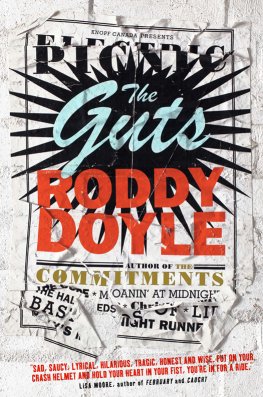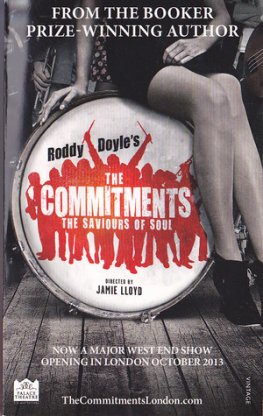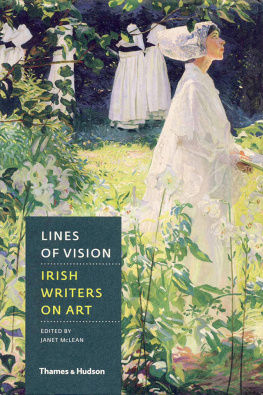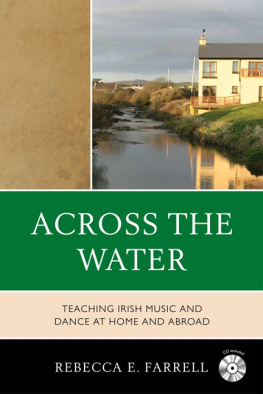The Commitments
This book examines The Commitments (Parker, 1991) for the first time as a film, rather than an adaptation of Roddy Doyles bestselling novel, and as a significant cultural event in 1990s Ireland.
A major hit in Ireland and around the world, the film depicts the short-lived attempts of an ensemble of young working-class Dubliners to achieve success as a soul covers band, playing the hits of Aretha Franklin, Otis Redding, and others, on a mission to bring soul back to Dublin. Drawing upon interviews with key figures involved in the film and its music, including Roddy Doyle, Angeline Ball, and Bronagh Gallagher, as well as archival research of director Alan Parkers papers, the book explores questions of authenticity associated with youth, music, class, and culture, and assesses the films legacy for the Irish film industry, Irish music scenes, and Irish youth. It also examines the films status as a truly transnational production.
This concise, yet interdisciplinary case study will be of interest to students and researchers in popular music, cultural studies, and sociology, as well as film and media studies.
Nessa Johnston is Senior Lecturer in Media, Film and Television at Edge Hill University, UK. Her research is about sound and music in screen media, cult cinema, media technologies, and media industries.
Cinema and Youth Cultures
Cinema and Youth Cultures engages with well-known youth films from American cinema as well as the cinemas of other countries. Using a variety of methodological and critical approaches, the series volumes provide informed accounts of how young people have been represented in film, while also exploring the ways in which young people engage with films made for and about them. In doing this, the Cinema and Youth Cultures series contributes to important and long-standing debates about youth cultures, how these are mobilized and articulated in influential film texts, and the impact that these texts have had on popular culture at large.
Series Editors: Sin Lincoln and Yannis Tzioumakis
The Beatles and Film
From Youth Culture to Counterculture
Stephen Glynn
Clerks
Over the Counter Culture and Youth Cinema
Peter Templeton
Moonlight
Screening Black Queer Youth
Maria Flood
The Commitments
Youth, Music, and Authenticity in 1990s Ireland
Nessa Johnston
Precious
Identity, Adaptation and the African American Youth Film
Katherine Whitehurst
For more information about this series, please visit: https://www.routledge.com/Cinema-and-Youth-Cultures/book-series/CYC
The Commitments
Youth, Music, and Authenticity in 1990s Ireland
Nessa Johnston
First published 2022
by Routledge
2 Park Square, Milton Park, Abingdon, Oxon OX14 4RN
and by Routledge
605 Third Avenue, New York, NY 10158
Routledge is an imprint of the Taylor & Francis Group, an informa business
2022 Nessa Johnston
The right of Nessa Johnston to be identified as author of this work has been asserted in accordance with sections 77 and 78 of the Copyright, Designs and Patents Act 1988.
All rights reserved. No part of this book may be reprinted or reproduced or utilised in any form or by any electronic, mechanical, or other means, now known or hereafter invented, including photocopying and recording, or in any information storage or retrieval system, without permission in writing from the publishers.
Trademark notice: Product or corporate names may be trademarks or registered trademarks, and are used only for identification and explanation without intent to infringe.
British Library Cataloguing-in-Publication Data
A catalogue record for this book is available from the British Library
Library of Congress Cataloging-in-Publication Data
Names: Johnston, Nessa, author.
Title: The Commitments : youth, music, and authenticity in 1990s Ireland / Nessa Johnston.
Description: Abingdon, Oxon ; New York : Routledge, 2022. | Series: Cinema and youth cultures | Includes bibliographical references and index.
Identifiers: LCCN 2021037235 (print) | LCCN 2021037236 (ebook) | ISBN 9780367273125 (hardback) | ISBN 9781032189710 (paperback) | ISBN 9780429296048 (ebook)
Subjects: LCSH: Commitments (Motion picture) | Motion pictures and music. | Youth--Ireland--Social conditions--20th century. | Music--Social aspects--Ireland. | Popular culture--Ireland--History--20th century.
Classification: LCC PN1997.C7485 J66 2022 (print) | LCC PN1997.C7485 (ebook) | DDC 791.43/72--dc23
LC record available at https://lccn.loc.gov/2021037235
LC ebook record available at https://lccn.loc.gov/2021037236
ISBN: 978-0-367-27312-5 (hbk)
ISBN: 978-1-032-18971-0 (pbk)
ISBN: 978-0-429-29604-8 (ebk)
DOI: 10.4324/9780429296048
Typeset in Times New Roman
by Deanta Global Publishing Services, Chennai, India
Contents
Figures
Audition poster, Hubbard Casting |
RT television coverage of The Commitments premiere, Savoy Cinema, Dublin |
Jimmy Rabbittes interview |
The Commitments photoshoot |
Kids on bikes, dressed in greys and browns |
Hospital waiting room scene |
Roy-ad Sally Roy-ad |
Mickah swallows microphone |
Shy Skateboard Auditioner |
Publicity still of band, showing clothing styles (photo David Appleby) |
Dave from Eejit Records introduces himself to Jimmy |
Jimmys reaction to And And! And |
Alan Parkers cameo appearance as a recording engineer |
Joey coaches Deans sax playing |
Deco singing Show Me |
Jimmy meets Derek and Outspan busking in Grafton Street |
Glen Hansard busking in Grafton Street in Once (Carney, 2007) |
The Commitments stamp (top right), Ireland, Centenary of Cinema, 1996 |
Series editors introduction
Despite the high visibility of youth films in the global media marketplace, especially since the 1980s when Conglomerate Hollywood realized that such films were not only strong box office performers but also the starting point for ancillary sales in other media markets as well as for franchise building, academic studies that focussed specifically on such films were slow to materialize. Arguably the most important factor behind academias reluctance to engage with youth films was a (then) widespread perception within the Film and Media Studies communities that such films held little cultural value and significance, and therefore were not worthy of serious scholarly research and examination. Just like the young subjects they represented, whose interests and cultural practices have been routinely deemed transitional and transitory, so were the films that represented them perceived as fleeting and easily digestible, destined to be forgotten quickly, as soon as the next youth film arrived in cinema screens a week later.








